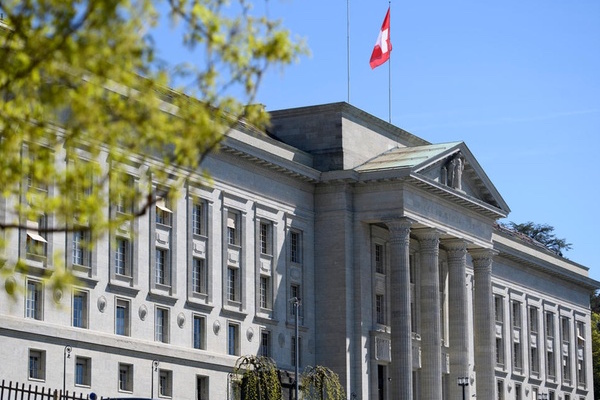
Oct 31, 2018 | News
The ICJ and the Swiss Section of the ICJ called today on Swiss people to seriously consider the adverse implications, if adopted, of the popular initiative called the “Swiss law instead of foreign judges – initiative for self-determination” by its proponents. On 25 November 2018, Swiss citizens will be called to vote on this initiative.
The campaign against the initiative has identified it as an “anti-human rights” referendum.
“The initiative, if approved, would have the effect of making it very difficult for people in Switzerland to access Swiss courts to vindicate their human rights,” said Massimo Frigo, ICJ Senior Legal Adviser.
“Swiss people would lose important defences against abuses by the State or private entities,” he added.
Unlike the title suggests the scope of the initiative is directed against international law in general (except for very few existing peremptory norms) which includes international multilateral treaties or bilateral commercial and administrative agreements.
The initiative would therefore fly in the fact of a fundamental legal principle essential to the rule of law, namely that individual States cannot use their national arrangements as an excuse to avoid their international legal obligations.
“Switzerland, as home to numerous international law-making institutions, has a long and distinguished history of championing international law. Adoption of this initiative would be a blow to the country’s reputation and leadership in this area,” said Massimo Frigo.
“The role accorded to international law by the Swiss Constitution and the jurisprudence of the Swiss Supreme Court is essential to uphold reliability of Switzerland as party to international treaties, its role as central actor and generator in many fields of law including international trade, but also legal certainty in Switzerland”, said Professor Marco Sassoli, board member of the Swiss Section of the ICJ and ICJ Commissioner.
“Much of the economic and diplomatic success of Switzerland is based on its faithful adherence and promotion of international law. Essential Swiss values such as its neutrality or its commitment to the protection of war victims are based upon international law,” said Professor Sassoli.
Contrary to its title the initiative is not directed against “foreign judges” but against the practice of Swiss judges, those of the Swiss Federal Supreme Court, and neglects that the self-determination of peoples leads to their direct submission to international law and that the conclusion of treaties is an expression of and not contrary to the sovereignty of the State.
The text of this initiative if approved could lead to the erosion of primacy of international law among the sources of law in Switzerland.
The ICJ and ICJ-Swiss Section join the several NGOs, trade unions, economic actors, political parties and people of Switzerland that want to secure their rights and those of everyone in Switzerland and appeal to the voters before casting their vote to seriously consider the above arguments and not to decide based upon mere slogans such as “self-determination”, “democracy” or “foreign judges”.
Contact:
Massimo Frigo, ICJ Senior Legal Adviser, t: +41 22 979 38 05 ; e: massimo.frigo(a)icj.org
PDF available in Italian: Switzerland-25 November Referendum-News-Press Release-2018-ITA
PDF available in German: Switzerland-25 November Referendum-News-Press Release-2018-GER
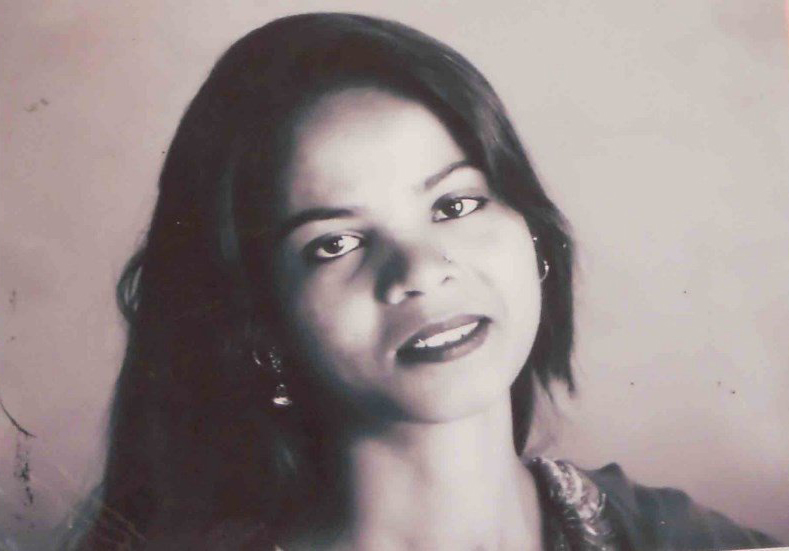
Oct 31, 2018 | News
The ICJ today welcomed the Pakistani Supreme Court’s decision to acquit Asia Noreen (Asia Bibi) of blasphemy charges under section 295-C of the Pakistan Penal Code.
Asia bibi had been on death row since 2010, when a trial court convicted her of “defaming the Prophet Muhammad” and sentenced her to death. The Lahore High Court had upheld her conviction and confirmed her death sentence in 2014.
“All eyes were on the Supreme Court to respond to Asia bibi’s final plea for justice and undo the blatant wrongs done to her and her family for eight long years,” said Frederick Rawski, ICJ’s Asia Director.
“It is heartening to see that despite threats and external pressures, the SC fulfilled its role to protect human rights in this case.”
Certain Islamist groups have frequently held demonstrations calling for Asia bibi and other blasphemy accused to be hanged. After the Supreme Court announced its decision to acquit Asia bibi, the Tehreek-e-Labbaik Pakistan took to the streets condemning the decision.
“The Government should take notice of this pattern of threats and reprisals in blasphemy cases and ensure that judges and lawyers are given adequate security to perform their duties independently, impartially and without any external influence,” said Rawski.
Reasons for Asia bibi’s acquittal include an unexplained delay in the registration of the criminal complaint; material inconsistencies in the testimonies of prosecution witnesses; wrongful reliance on Asia bibi’s extra-judicial “confession”; and failure to take into account the circumstances of the blasphemy allegations, including a “quarrel”, possibly about Asia bibi’s faith.
The Supreme Court also noted that the context indicates the charges could have arisen from a “false allegation” of blasphemy, echoing concerns also raised by the ICJ that the blasphemy laws in Pakistan have typcially become an instrument of personal vendettas and malicious motivations.
Asia bibi’s appeal was the first blasphemy case being heard by the Supreme Court since 2002. The Court has so far not upheld any convictions for blasphemy under section 295-C of the Penal Code (defamation of the Prophet Muhammad), though dozens of people have been convicted by trial courts and a number of appeals are pending before various appellate forums.
The ICJ has documented in detail systematic and widespread fair trial violations in proceedings related to blasphemy offences in Pakistan.
Courts in Pakistan have noted on multiple occasions that people accused of blasphemy suffer ‘beyond proportion or repair’ in the absence of adequate safeguards against misapplication or misuse of such blasphemy laws.
The ICJ underscores that laws that criminalize the exercise of freedom of expression are non-compliant with international law, including the International Covenant on Civil and Political Rights, to which Pakistan is a party. This includes the criminalization of expression in relation to religion.
The ICJ opposed the death penalty in all circumstances and considers that it constitutes a violation of the right to life and the right not to be subjected to cruel, inhuman or degrading punishment.
Contact:
Frederick Rawski (Bangkok), ICJ Asia Pacific Regional Director, e: frederick.rawski(a)icj.org
Reema Omer, ICJ International Legal Advisor (South Asia) t: +447889565691; e: reema.omer(a)icj.org
Additional information
In November 2015, the ICJ published a report documenting in detail systematic and widespread violations of the right to a fair trial in proceedings related to blasphemy offences in Pakistan, particularly in trial courts. The report confirmed concerns raised by the Supreme Court of Pakistan that individuals accused of blasphemy ‘suffer beyond proportion or repair’ in the absence of adequate safeguards.
The ICJ also made a number of recommendations to the Pakistani executive, legislative and judicial branches to address violations caused by application of the blasphemy laws, whether due to the legislative provisions themselves or at the investigative, prosecutorial, procedural, administrative and judicial levels highlighted in the report, including to ensure that those accused of blasphemy have a fair chance at defending themselves.
In a briefing paper published in October 2016, the ICJ assessed the fair trial violations in Asia bibi’s trial and appellate hearing. The ICJ found glaring omissions both in the appraisal of evidence as well as the application of laws that brought her conviction into question.
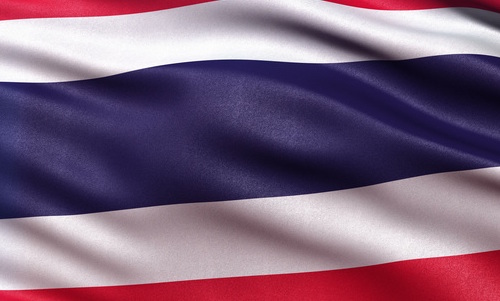
Oct 21, 2018 | News
On 21 October, the ICJ, together with Cross Cultural Foundation (CrCF), organized a lawyers’ meeting in Bangkok on the admissibility of evidence in the context of application of special security laws in Thailand.
Attendees included 30 human rights lawyers, paralegal officers, documentation officers, human rights defenders and journalists from Bangkok and other regions in Thailand.
The objectives of the meeting were:
- To discuss about the challenges that lawyers currently face regarding the admissibility of evidence in criminal proceedings, both in law and in practice, in the context of existing special security laws. These laws include the Martial Law, Emergency Decree, and the Internal Security Act that are applied in the southern border provinces, and certain repressive National Council for Peace and Order (NCPO) Orders that are applied nationwide;
- To discuss how to address the adverse effects on human rights and the administration of justice as a consequence of the implementation of these laws and how lawyers, members of civil society, and other stakeholders, at national and international levels, may work together to address such challenges; and
- To gather recommendations from participants and discuss future advocacy strategies to tackle identified challenges.
The ICJ’s Legal Memorandum on Hearsay Evidence and International Fair Trial Standards was used as one of the main reference materials during the meeting.
A main recommendation of the Workshop, echoed the ICJ’s assessment in the Legal Memorandum, namely that Thailand should review existing standards in all special security laws and relevant articles in the Criminal Procedure Code regarding the admissibility of evidence that are not compatible with international fair trial standards to ensure safeguards required to protect individuals from unfair trials.
Read also
Thailand : legal memorandum – hearsay evidence and international fair trial standards
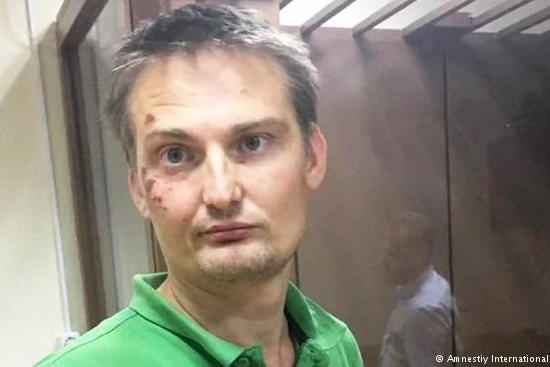
Oct 3, 2018 | News
Today, the ICJ expressed concern at ongoing criminal proceedings against Mikhail Benyash, a lawyer practicing in Russia, who is charged with use of force against the police and impeding justice.
The lawyer has been detained until 23 November. The ICJ called on the responsible authorities to drop any criminal charge relating to his conduct of professional duties in the courtroom, and to ensure that the lawyer’s rights are protected and that allegations of his ill-treatment are fully investigated.
Benyash alleges that following his apprehension by the police on 9 September, the police beat him up in the car. According to the police report he inflicted the injuries on himself, contrary to demands of the police that he stop doing so.
He was charged with disobedience to the police, which according to the police report was due to “the fact that the police asked Benyash not to injure himself, but he continued self-beating”. Benyash was convicted and sentenced to 14 days of imprisonment and 40 hours of correctional works.
On 23 September, the day of his release, Benyash was arrested again. He was charged with two further offences: violence against a representative of authority (Criminal Code Article 318(1)) based on an allegation, seemingly not raised at the time of his earlier charge and conviction in relation to the same incident, that in the course of his arrest on 9 September he allegedly bit a police officer and hit another.
On 23 September he was also charged with obstruction of justice (Criminal Code Article 294(1)), reportedly on the basis of an allegation that in a court hearing on 6 May 2018, Benyash had “repeatedly interrupted, gave instructions and objections to the decisions of the judge” and after he had been removed from the courtroom “continued unlawful behaviour”.
According to the lawyer, he was taken out of the courtroom by force due to his motions to allow certain members of the public to be present at the open hearing.
The ICJ is concerned that the criminal obstruction charge against Mikhail Benyash appears to relate at least in part to statements he made in court in the course of carrying out his professional duties of representation of his clients.
The fact that this charge was only laid following his recent arrest, some five months after the alleged incident occurred, also raises questions as to the motivation for bringing the charge forward now.
“Benyash is currently charged on account of his alleged attack on a police officer and obstruction of justice. While the first charge requires an impartial and independent inquiry, the second charge should be of concern to the entire lawyers’ community”, said Karinna Moskalenko, ICJ honorary member. “We fear that this may lead to lawyers in Russia being charged with obstruction of justice simply for actively expressing their position and objections in accordance with the procedure prescribed by law”, she added.
Furthermore, the ICJ emphasises that under international human rights law, states have obligations to investigate allegations of treatment that may amount to torture or inhuman or degrading in violation of Article 3 of the European Convention on Human Rights, as well as other international law norms binding on the Russian Federation.
The investigative authorities have duty to investigate allegations of ill-treatment of the lawyer by police following his arrest on 9 September promptly, effectively and impartially and any persons responsible should be brought to justice.
Read the ICJ’s full statement here: Russia-Statement on Benyash-News-Web Story-2018-ENG
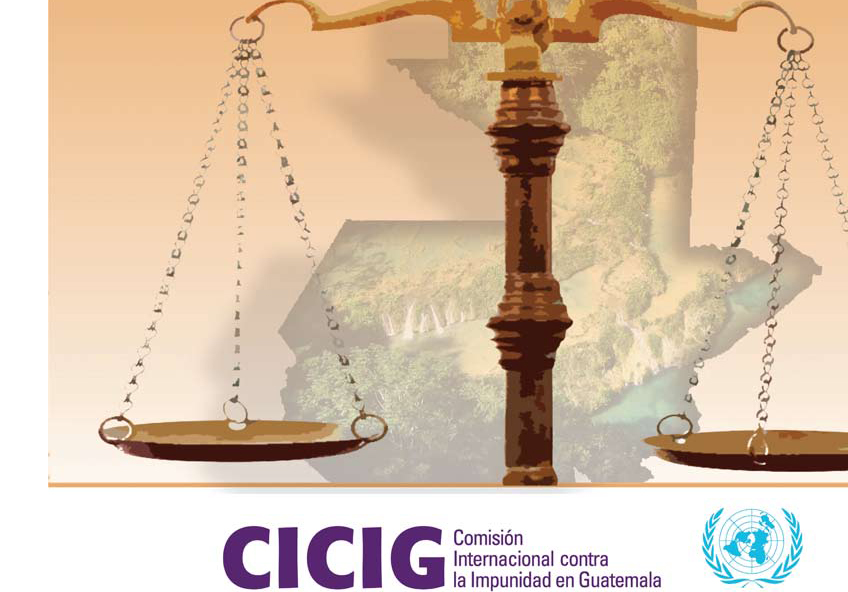
Oct 1, 2018 | News
The Inter-American Commission of Human Rights (IACHR) held a special hearing on the role of the International Commission against Impunity in Guatemala (CICIG) in Boulder, Colarado.
Ramón Cadena, the ICJ Director stated “We regret that the Government of Guatemala requested the IACHR to hold the hearing behind closed doors since all the points discussed were of public interest. The discussions should have been open to the press and the general public. We urge the authorities to ensure there will be no retaliations against the work carried out by human rights organizations and human rights defenders.”
The ICJ welcomed the participation of many NGOs at the event and the frank dialogue that took place on this crucial issue for human rights in that country. The Guatemalan government delegation claimed that the Inter-American System of Human Rights was not competent to consider the matter. However, the IACHR maintained it was competent, according to the American Convention of Human Rights and other regional human rights legislation. As an “external observer”, the IACHR stated it was “surprised” by the latest decisions taken by government authorities at the highest level not to extend the CICIG mandate nor allow the entry of Commissioner Iván Velásquez into the country. It considered these decisions were “excessive” and in no way strengthened the rule of law in Guatemala.
The government delegation further argued that the CICIG acted as a “parallel prosecutor” which affects the internal order of the country. The NGO delegation stated that on the contrary the CICIG acted as a “complementary prosecutor”. The delegation further noted that before the CICIG mandate was approved, the Constitutional Court, in an opinion published in the official gazette on 8 May 2007 (document no 791-2007), considered that the CICIG did not violate the constitutional order nor the rule of law in Guatemala.
The Constitutional Court referred to the CICIG as having “the function of supporting, assisting and strengthening the state institutions responsible for investigating crimes committed by illegal and clandestine security forces .. and does not exclude the possibility of receiving support from other institutions in the collection of evidence, provided that the participation has been established in a legal manner, as in the present case.”
The IACHR considered that the essential question was whether the State of Guatemala already had the judicial independence and strong institutions necessary to fight against corruption in Guatemala without the support of the CICIG. The NGO delegation considered, based on different arguments, that the presence of the CICIG in Guatemala was still necessary.
The IACHR also informed the government delegation that it was in their interest to invite an in-situ visit of the IACHR as soon as possible so as to better understand the human rights situation.
The ICJ Director for Central America Ramón Cadena participated in the hearing at the request of the Central American Institute for Social Democracy Studies (DEMOS), the Committee for Peasant Development (CODECA) and the Network of Community Defenders. The Indigenous Peoples Law Firm had been requested to attend by these organizations but was unable to do so at the last moment.









